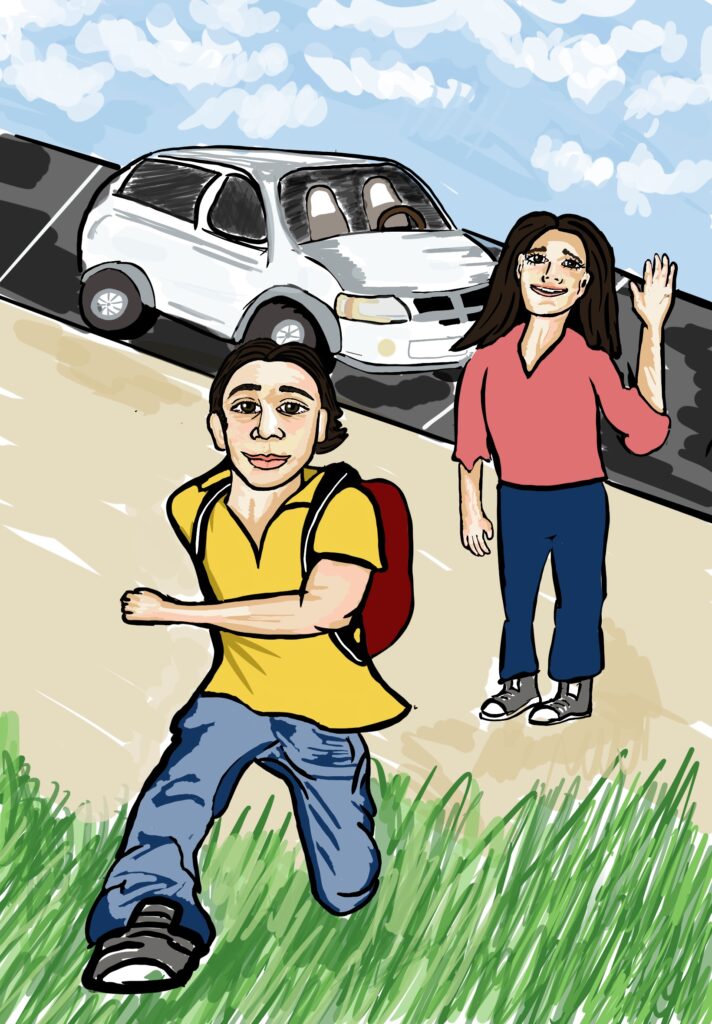At Choate, we often casually assume the existence of God. We read the Bible in English class. The political debate a few weeks ago ended with “God Bless America.” The recent religious panel did not include representation from non-Abrahamic religions. These instances are not purposefully discriminatory, yet they serve as rather uncomfortable reminders of Christian and other religious cultural dominance on campus and in the world at large.
The Pledge of Allegiance includes the words “one nation under God.” People offer their prayers or wish God’s grace without consideration of the faith of those on the receiving end. Ted Cruz can run a relatively successful campaign for president on a religious platform. On the other hand, atheists rarely have a platform to speak from. In America, people can be atheist as long as they sit in a corner quietly and be atheist there.
We fail to recognize the fact that 3.1% of Americans identify as atheist (according to data from the Pew Research Center from 2014); still more citizens are agnostic (4%) or religiously unaffiliated (22.8%). That means millions may cringe at each mention of “God” in the public sphere — a phenomenon perpetuated by the unwitting religious majority who, again, are often not deliberately discriminating but are part of a culture that screams “America is Christian.”
Choate students probably do not purposefully suppress peers of different faiths or no faith at all. Rather, we are all participants in a shortage of communication on the topic of religious differences. The situation has two major causes: the nature of atheism makes inclusion intrinsically awkward, and the sensitivity of conversations on faith makes their realization a challenge.
Non-religious students, in particular non-spiritual students, cannot be easily incorporated into clubs ain the way members of organized religions are. Can you imagine that email? Christian Fellowship will be meeting, Hillel will be hosting a program in honor of Passover, and atheist students will continue not to believe in a god. For non-spiritual students, inclusion would not fix exclusion. To the contrary, it would worsen feelings of misinterpretation by being categorized under “Spiritual Life.”
In addition, many choose not to talk about their faith (or lack thereof) because those conversations can be uncomfortable; however, we should strive to engage in these discussions rather than circumvent then. After all, what fun would it be if everyone agreed? Differing faiths are frequently inherently contradictory. This fact should be obvious: Christians believe in the existence of God; atheists do not. We have one of the world’s oldest and most fascinating questions at our fingertips, and we look the other way.
The dominance of Christian culture over non-religious groups most certainly is not the only example of religious inequality in America or at Choate. According to the Rev. Ally Brundige, some religious students — including, somewhat ironically, Christians — on campus report feeling looked down upon for their devotion or unfairly grouped with the hateful social rhetoric of some Christian extremists. On a global scale, Islamophobia becomes an increasingly threatening and expansive issue with each passing day. Collectively, however, these developments do share a common factor: without sufficient religious-related discourse to dispel ignorance or hatred, disastrous results can follow.
As for a remedy, let us start with Choate. We should recognize the impact of the religious majority in America on our lives. We should embrace the plurality of our belief systems. We should de-stigmatize conversations on faith. Achieving full religious equality may be an unlikely goal for the near future, but the least we can do is try.




